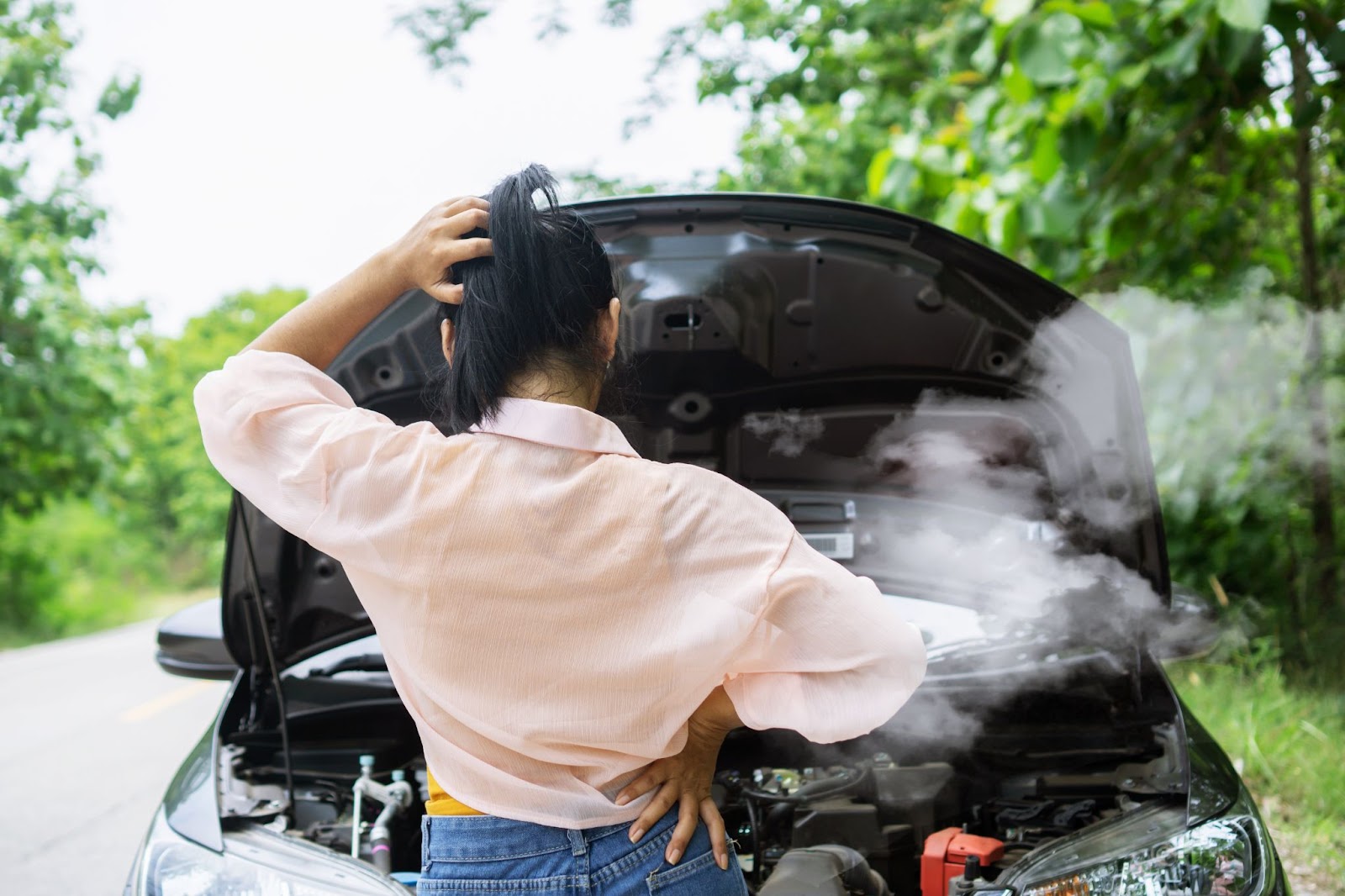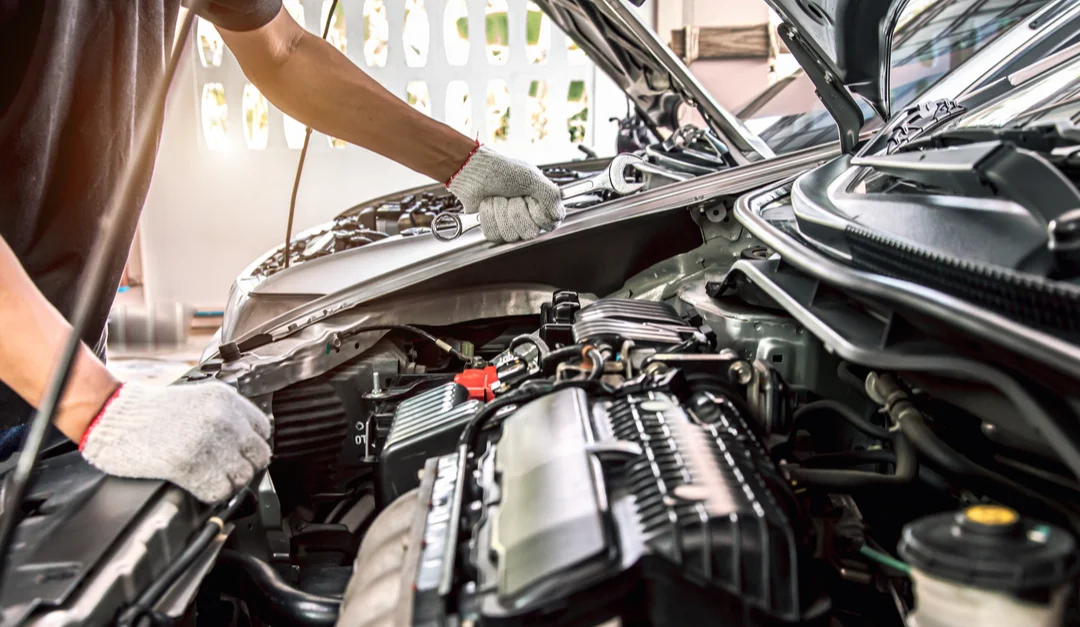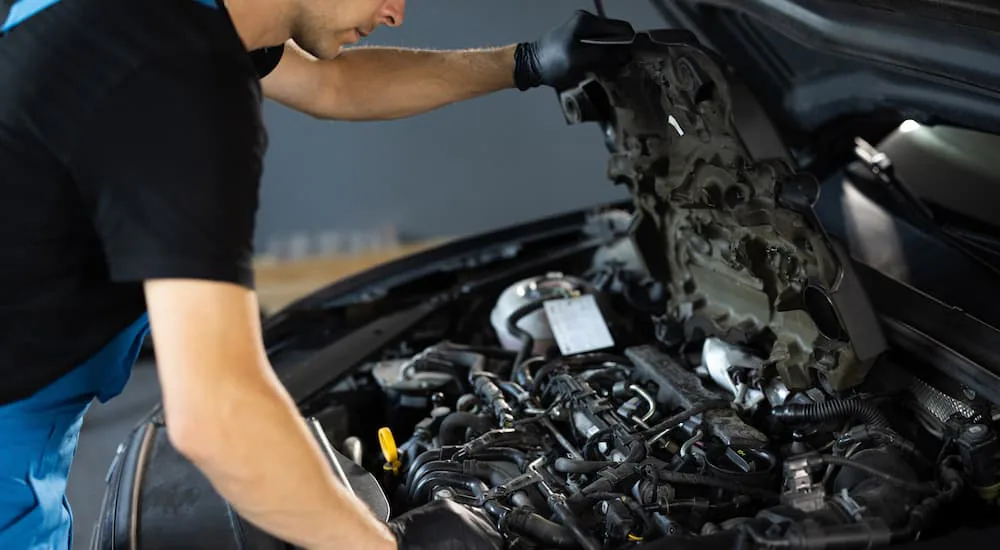Imagine you’re driving along the street, and all seems well. Then, as you stop at a red light, your car gives a subtle shudder, or perhaps the engine begins to sound rougher or louder than usual. Worse still, everything might feel fine until you catch a whiff of something burning or notice smoke rising from under the hood. These scenarios can turn an ordinary day into a stressful one, leaving you searching for a reliable service center nearby to get back on the road.
Vehicles are intricate machines, and while they typically function smoothly, certain common issues can cause them to run roughly. Understanding these problems can help you recognize early warning signs and seek timely repairs, avoiding more extensive damage.

Engine Issues
The engine is the heart of your vehicle, working tirelessly whenever you’re on the road. It endures significant wear and tear, making regular maintenance essential to keep it in optimal condition. However, even with proper care, problems can arise. Identifying and addressing these issues early can prevent costly repairs down the line.
Dirty or Low Motor Oil
Motor oil plays a critical role in your engine’s performance by lubricating moving parts and minimizing heat buildup. Over time, oil becomes dirty and less effective, while low oil levels can lead to catastrophic engine damage. Regular oil changes are a simple yet vital step in maintaining engine health.
Spark Plug Malfunctions
Spark plugs ignite the fuel-air mixture in your engine, enabling combustion. When a spark plug misfires or becomes worn out, you may notice your engine running unevenly. Replacing faulty spark plugs is a straightforward fix that can restore smooth operation.
Low or Dirty Coolant
Even with adequate oil, engines generate immense heat. Coolant helps regulate this heat, but old or insufficient coolant can cause overheating. Leaks or a failing radiator might also compromise your cooling system. Addressing coolant issues promptly is essential to prevent overheating and engine damage.
Belt and Hose Wear
Belts and hoses are integral to your engine’s operation, transferring power and fluids. Cracked belts or leaking hoses can disrupt performance and lead to rough running. Routine inspections can catch these issues before they escalate.
Transmission Problems
The transmission plays a key role in transferring power from the engine to the wheels, ensuring smooth acceleration and deceleration. When transmission issues arise, they often manifest as a rough or unsteady driving experience.
Low Fluid or Leaks
Transmission fluid lubricates and cools the system, facilitating seamless gear shifts. Low fluid levels or leaks can lead to overheating and performance problems. A common indicator of a leak is a burning smell, often caused by fluid dripping onto hot transmission components.
Difficulty Shifting Gears
Struggling to shift between gears is a telltale sign of transmission trouble. This issue can stem from worn components or insufficient fluid. Addressing it promptly helps prevent further wear and ensures reliable operation.
Slipping Gears or High Engine Revving
Gear slipping occurs when the transmission fails to stay in gear, often accompanied by unusually high engine revving. This may indicate fluid issues or internal wear, both of which require professional attention.

Exhaust System Issues
The exhaust system isn’t just about reducing noise—it also plays a critical role in performance and emissions control. Issues within this system can affect your vehicle’s efficiency and contribute to a rough ride.
Leaking or Damaged Exhaust System
Exhaust leaks often produce visible signs, such as smoke escaping from places other than the rear tailpipe. You may also notice unusual noises caused by escaping gases, signaling a need for repairs.
Loose Exhaust Components
Pipes and other parts of the exhaust system are secured to ensure proper gas flow. When components come loose, they may vibrate against other parts of the vehicle, creating humming or rattling noises. Securing these components is crucial to maintaining a smooth operation.
Malfunctioning Parts
Key components like the catalytic converter and muffler play vital roles in reducing emissions and noise. Damage to these parts can lead to poor performance, louder noise, and decreased fuel efficiency. Timely repairs can restore proper functionality.
Preventive Maintenance and Repairs
Recognizing these common issues is the first step in keeping your vehicle running smoothly. Preventive maintenance, such as regular oil changes, coolant checks, and belt inspections, can address many problems before they develop into significant concerns. However, some repairs require professional expertise.
While simple tasks like replacing windshield wipers or topping off fluids can often be handled at home, more complex repairs—such as engine, transmission, or exhaust work—demand specialized tools and knowledge. Attempting these repairs without proper training can lead to costly mistakes or even permanent damage to your vehicle.
For critical maintenance and repairs, it’s best to rely on experienced professionals. Trained technicians can accurately diagnose issues and provide the necessary repairs to ensure your car operates safely and efficiently. Whether you’re dealing with engine misfires, transmission slipping, or exhaust leaks, addressing problems promptly minimizes the risk of further damage and helps you avoid unexpected breakdowns.
Staying Ahead of Car Troubles
No one wants to face the inconvenience of a vehicle malfunction, but being aware of potential problems allows you to take proactive steps to avoid them. Regular maintenance, attentive driving, and early intervention are the keys to keeping your vehicle in top condition.
When you notice unusual sounds, smells, or performance changes, don’t ignore them. Taking action quickly not only ensures your safety on the road but also saves time and money by preventing larger issues from developing. By staying vigilant and relying on professional assistance for complex repairs, you can enjoy a smoother, more reliable driving experience.

